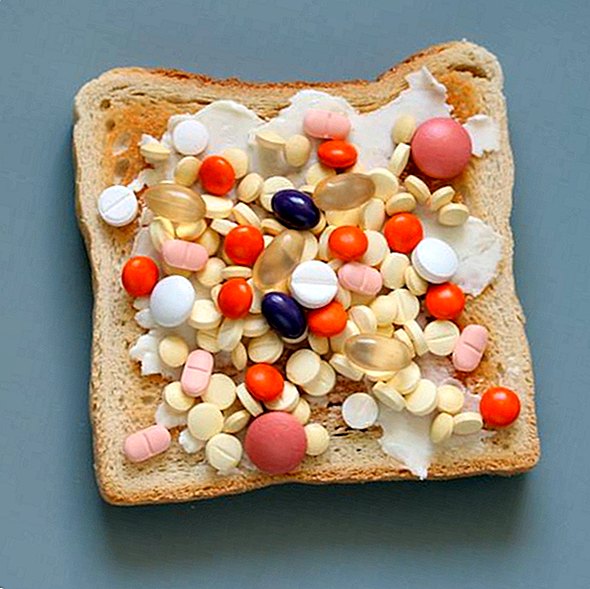Dietary supplements - useful or not?

Are dietary supplements useful?
For example, vitamin B12: A few years ago hardly anyone talked about it, today it is literally on everyone's lips. And not only because there are more and more vegans who almost inevitably fall into a shortage due to their diet. The "Nervenvitamin" should provide more energy and mental performance - and thus for exactly what is required in our fast-paced time more and more.
No wonder, then, that the market for dietary supplements is growing: Last year alone, 172 million packs were sold in drugstores and pharmacies in Germany - 4.2 percent more than in the previous year. In a survey of consumer advice gave well One in three respondents said they had used one or more of these products in the last six months.
Particularly eager consumers were adults before the age of 30. The most popular among the pills, powders and juices is magnesium, followed by the second with vitamin A and D, and third with calcium supplements. Where the trend to swallow comes from is clear: Never before has health been more important than today, such as the Frankfurt Zukunftsinstitut. It is no longer just an absence of illness, but something that can be constantly improved.
Healthy nutrition is still required
Can I just take the remedies like that?
It is safer to discuss the intake with a doctor or doctor and to be examined for a shortage. "Germany is not a vitamin manganese land," says Professor Christian Sina, Director of the Institute of Nutritional Medicine in Lübeck. "It is possible to eat fully-fledged all year round at acceptable prices and to eat enough fresh food every day to get all the necessary nutrients."
However, certain diets or living conditions make supplementing individual substances necessary. For example, in pregnancy and lactation, there are clear recommendations that folic acid and iodine should be supplemented. Nevertheless, Christian Sina advises against self-medication: "Always discuss the dosage with the attending physician." Thus, a thyroid disease of pregnant women may require a different amount of iodine.
Also Vegans should regularly check their blood levels with the doctor and get advice on supplements. The same applies to vitamin D if you spend less than half an hour in daylight during the dark winter months.
Are pills as effective as vegetables?
No. "Insulated, laboratory-made vitamins and minerals are generally not absorbed as well as the ingredients in fresh foods," says nutritionist Sina. "For example, the body can use calcium from milk and cheese better than calcium from an effervescent tablet. Nibbling red pepper provides us with more vitamin C than any capsule. And: Most of the micronutrients are excreted by the body anyway, because he can not even completely absorb them in the highly concentrated amount. "
Less is more
At least they are not harmful, right?
Some can even be really dangerous. In the 1990s, two large vitamin trials in Finland and the US had to be stopped as it became clear that taking beta-carotene in smokers increases the risk of lung cancer. A US study also links an increasing number of liver dysfunctions to dietary supplements - the authors have been able to detect microbial, mycotoxin or heavy metal contamination in several plant products.
Also with the dosage one should be careful: Too much may hurt. "Above all, fat-soluble vitamins such as A and E, which stores the body, especially in the liver or in adipose tissue, can lead to overdose and elevated liver enzymes," said Christian Sina.
And even to the effect of high-dose water-soluble vitamins or minerals, there are not enough studies that exclude possible damage. "Some consumers are not aware that they are taking more of these nutrients through food and fortified foods. And in some of the funds offered, there are fifty times as much of what we really need"says Angela Clausen, ecotrophologist from the consumer center of North Rhine-Westphalia.
When Stiftung Warentest examined 35 funds last year, the maximum recommended daily dose exceeded at 26. Products from the Internet were particularly high-dose. Information on recommended maximum amounts is provided by the Federal Institute for Risk Assessment or the Consumer Centers (www.klartext-nahrungsergaenzung.de).
Are the products controlled as strictly as medicines?
According to Consumer Surveys, one out of every two relies on government reviews on the safety and efficacy of dietary supplements. Wrong: "They fall under the food, not under medication - even if they are often opened. Therefore they are not subject to testing and licensing requirements "says ecotrophologist Clausen. The products are only randomly tested after they are already on the market. Whether and how individual ingredients work and what side effects are possible is not always known.
What if you combine them with medications?
You should keep in mind that dangerous interactions can occur. "Some substances strengthen, weaken or block drugs from drugs," said Angela Clausen. For example, goji berries can increase the effectiveness of certain anticoagulants, so the bleeding tendency is increased. "Even ingredients of grapefruit carry the risk that some drugs are metabolized worse and stay longer than desired in the body," adds Christian Sina. In addition, some of the supplements distort blood or urine levels. Therefore, the intake of all pills and powders - especially herbal - better agree with the doctor.
Superfoods, Vitamin B12 & Co.
And how should one take the preparations?
Magnesium and calcium should be taken in the right proportions, Folic acid not with zinc and selenium not with vitamin C. - Often micronutrients are in so-called absorption competition. "Put simply, the large amount of one substance blocks the same transport pathway in the body, which is also necessary for another nutrient," explains Angela Clausen.
Even some foods inhibit the absorption, z. B. Block coffee or tea iron supplements, Spinach or rhubarb calcium products. But there are also substances that are well tolerated and strengthen when taken simultaneously in the effect, such as iron and vitamin C or the fat-soluble vitamins A, D, K, E and high quality oil.
Are there any particular trends in dietary supplements?
Oh yeah. "At the moment, magnesium and superfoods are in demand in the mass market," says Angela Clausen. Cures with intestinal bacteria have also become established in recent years, parallel to research on the importance of these microorganisms. But they make up a small market share - and their therapeutic effect has so far been proven only in the case of inflammatory bowel disease.
Why the preferences vary, is due to new scientific findings, but also because the demands in the family and work have changed. Therefore, it is absolutely understandable to want to make nerves stronger with vitamin B12. But a capsule can not solve everything.
Video tip: Food Bowls: That's why they taste better than eating plates











